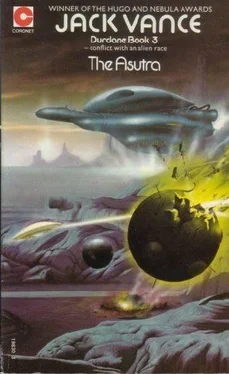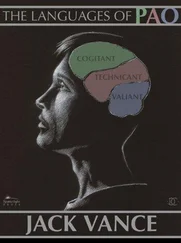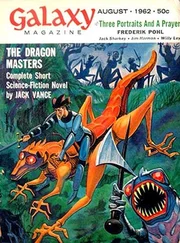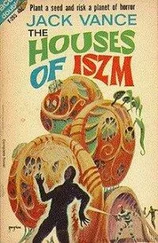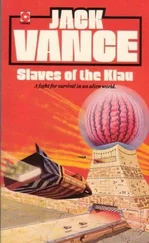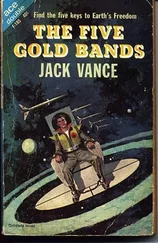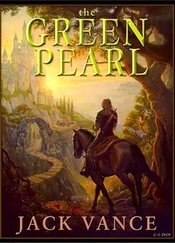Jack Vance - The Asutra
Здесь есть возможность читать онлайн «Jack Vance - The Asutra» весь текст электронной книги совершенно бесплатно (целиком полную версию без сокращений). В некоторых случаях можно слушать аудио, скачать через торрент в формате fb2 и присутствует краткое содержание. Жанр: Фантастика и фэнтези, на английском языке. Описание произведения, (предисловие) а так же отзывы посетителей доступны на портале библиотеки ЛибКат.
- Название:The Asutra
- Автор:
- Жанр:
- Год:неизвестен
- ISBN:нет данных
- Рейтинг книги:4 / 5. Голосов: 1
-
Избранное:Добавить в избранное
- Отзывы:
-
Ваша оценка:
- 80
- 1
- 2
- 3
- 4
- 5
The Asutra: краткое содержание, описание и аннотация
Предлагаем к чтению аннотацию, описание, краткое содержание или предисловие (зависит от того, что написал сам автор книги «The Asutra»). Если вы не нашли необходимую информацию о книге — напишите в комментариях, мы постараемся отыскать её.
The Asutra — читать онлайн бесплатно полную книгу (весь текст) целиком
Ниже представлен текст книги, разбитый по страницам. Система сохранения места последней прочитанной страницы, позволяет с удобством читать онлайн бесплатно книгу «The Asutra», без необходимости каждый раз заново искать на чём Вы остановились. Поставьте закладку, и сможете в любой момент перейти на страницу, на которой закончили чтение.
Интервал:
Закладка:
During the night the boat drifted slowly south. Etzwane slept on one of the narrow berths; he was not aware whether or not Ifness did the same. In the morning, cold and cramped, he went out into the cockpit to find Ifness looking out over the gunwale. A mist concealed the land below, the boat floated alone between "gray mist and lavender sky.
For an hour the two sat in dour silence, drinking tea. At last the three suns rolled high and the mist began to dissipate, swirling and drifting, revealing irregular districts of land and river. Below them, the Keba made a mighty swing to the west, where it was joined from the east by a tributary, the Shill. On the west bank three docks thrust out into the Keba, marking a settlement of fifty or sixty huts and a half-dozen larger structures. Ifness exclaimed in satisfaction. "Shillinsk at last! It exists in spite of Kreposkin! " He lowered the boat to the face of the water. Etzwane stepped the mast and hoisted the sail; the boat proceeded across the water to the docks. Ifness brought the boat up the water-steps; Etzwane jumped ashore with a line; Ifness followed more deliberately. Etzwane payed out the line; the boat drifted downstream and took a place among a dozen fishing smacks, not notably different from itself. Ifness and Etzwane turned toward Shillinsk Town,
CHAPTER 4
The cabins and sheds of Shillinsk were built from gray stone quarried from a nearby ledge and rough-laid between balks of driftwood. Directly behind the docks stood the Shillinsk Inn, a relatively imposing structure of three stories. Lavender suns' light glared on gray stone and black timber; the shadows, by some ocular accommodation, appeared green, the color of old water in a barrel.
Shillinsk Town seemed quiet, only half alive. No sound could be heard except the lap of waves along the shore. Two women walked slowly along the riverside trail; they wore baggy black breeches, blouses of dark purple, head-kerchiefs of rich rust-orange. Three barges lay alongside the docks, one empty and two partially laden. Several barge-tenders were bound for the tavern; Ifness and Etzwane followed a few paces to the rear.
The barge-tenders pushed through the driftwood doors, with Ifness and Etzwane behind them, into a common room considerably more comfortable than the rude exterior suggested. A fire of sea-coal blazed in a huge fireplace; the walls had been plastered, whitewashed, and decorated with festoons and rosettes of carved wood. A group of barge-tenders sat before the fire eating a stew of fish and reed root. To the side, half in the shadows, two men of the district sat hunched over their wooden mugs. Firelight molded their slab-sided faces; they spoke little and peered distrustfully sidewise, watching the barge-tenders. One displayed a black mustache bushy as a dust brush, the other wore both a chin beard and a two-inch copper nose ring. With fascination Etzwane saw him knock up the ring with the rim of his mug and drink. They wore the Sorukh costume: black breeches, loose shirts embroidered with fetish signs, and from their waists hung scimitars of the white metal ghisim, an alloy of silver, platinum, tin, and copper, forged and hardened by a secret process.
Ifness and Etzwane settled at a table near the fire. The innkeeper, a man bald and flat-faced, with a deformed leg and a hard stare, hobbled over to learn their wants. Ifness spoke for lodging and the best meal available. The innkeeper announced that he could serve clam soup, herbs, and sweet beetles; grilled meat with water-greens, bread, blue-flower marmalade, and vervain tea: a meal which Ifness had not expected and which he pronounced satisfactory.
"I must discuss my recompense," said the innkeeper. "What do you have to trade?"
Ifness brought forth one of his glass jewels. "This."
The innkeeper drew back and showed the palm of his hand in disdain. "What do you take me for? This is no more than coarse glass, a bauble for children."
Indeed then," said Ifness. "What is its color?"
"It is the color of old grass, verging toward river water."
"Look. " Ifness closed the gem in his hand, then opened it. "What color now? ".
"A clear crimson! "
"And now? " Ifness exposed the gem to the warmth of the fire and it glinted green as an emerald. "Now- take it into the dark and tell me what you see."
The innkeeper went off to a closet, and presently returned. "It shines blue and sends off rays of several colors."
'The object is a starstone," said Ifness. "Such are occasionally taken from the center of meteorites. It is in fact too valuable to exchange for mere food and lodging, but we have nothing else."
"It will suffice, or so I suppose," stated the landlord in a pompous voice. "How long does your barge remain at Shillinsk?"
"Several days, until we conclude our business. We deal in exotic goods, and at this moment we require the neck bones of dead Roguskhoi, which have a medicinal efficacy."
" 'Roguskhoi? What are they?"
"You call them differently. I refer to the red, half-human warriors which have pillaged the Plain of Blue Flowers."
"Ah! We call them the Tied Devils.' They are of value after all?"
"I make no such assertions; I merely traffic in bones. Who would be the local dealer in such merchandise?"
The innkeeper uttered a coarse bark of laughter, which he quickly stifled, and turned a look toward the two Sorukh, who had been attending the conversation.
"In these parts," said the innkeeper, "bones are so common as to be worthless, and a man's life is at little greater price. Observe this leg, which my mother maimed to protect me from the slave-takers. They were then the Esche from the Murd Mountains across the Shill. Now the Esche are gone and Hulkas have come, and all is as before, or worse. Never turn your back to a Hulka, or you'll find a chain around your neck. Four from Shillinsk have been taken during this last year. Hulka or Red Devil-which is worse? Take your choice."
The mustached Sorukh suddenly joined the talk. "The Red Devils are extinct, except for their bones, which as you know belong to us."
"Precisely the case," declared the second Sorukh, the ring swinging against his lip as he spoke. "We know the therapeutic effect of Red Devil bones, and we intend to realize a fair profit."
"All very well," said Ifness, "but why do you assert their extinction?"
"The matter is common knowledge across the Plain."
"And who accomplished this act?"
The Sorukh tugged at his beard. "The Hulkas perhaps, or a band from over the Kuzi Kaza. It seems that magic was worked on both sides."
The Hulkas lack magic," remarked the innkeeper. "They are ordinary slavers. The tribes beyond the Kuzi Kaza are ferocious, but I have never heard magic ascribed to them."
The ring-nosed Sorukh made a sudden harsh gesture. "This is not germane. " He turned to Ifness. "Do you intend to buy our bones, or shall we take them elsewhere?"
"I naturally want to inspect them," said Ifness. "Let us go look, then we can talk more to the point."
The Sorukhs sat back in shock. "Here is absurdity taken to the point of offense. Do you think we carry merchandise on our backs like Tchark women? We are proud folk and resent an affront! "
"I intended no offense," said Ifness. "I merely expressed a desire to see the merchandise. Where is it stored?"
"Let us make a short matter' of the situation," said the Sorukh with the mustache. "The bones remain at the battlefield, or so I suppose. We will sell our interest for a modest trade, and then you can do what you wish with the bones."
Ifness thought a moment. This procedure is scarcely to my advantage. What if the bones are of poor quality? Or impossible to transport? Either bring the bones here or conduct us to the bones, so that I may judge their value."
Читать дальшеИнтервал:
Закладка:
Похожие книги на «The Asutra»
Представляем Вашему вниманию похожие книги на «The Asutra» списком для выбора. Мы отобрали схожую по названию и смыслу литературу в надежде предоставить читателям больше вариантов отыскать новые, интересные, ещё непрочитанные произведения.
Обсуждение, отзывы о книге «The Asutra» и просто собственные мнения читателей. Оставьте ваши комментарии, напишите, что Вы думаете о произведении, его смысле или главных героях. Укажите что конкретно понравилось, а что нет, и почему Вы так считаете.
